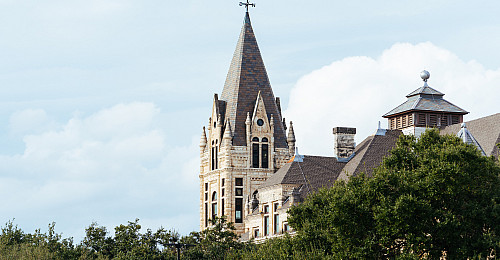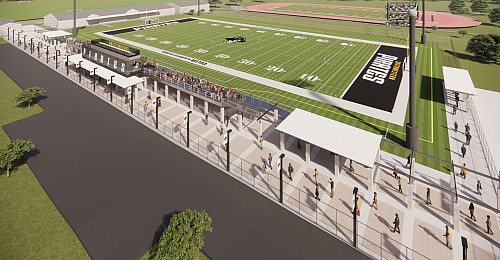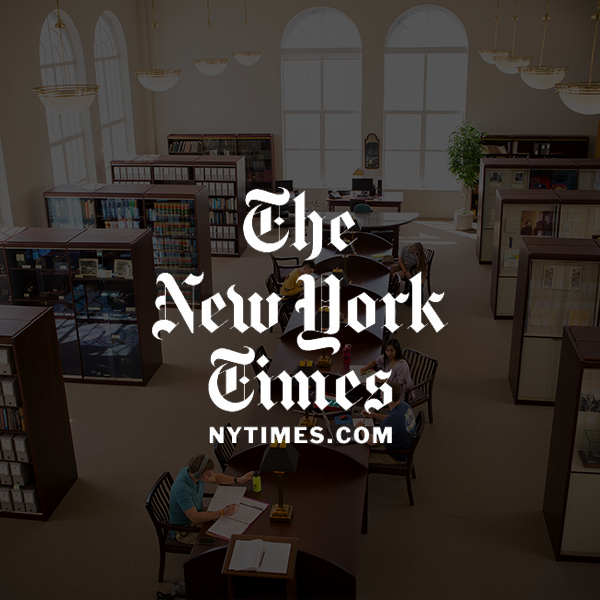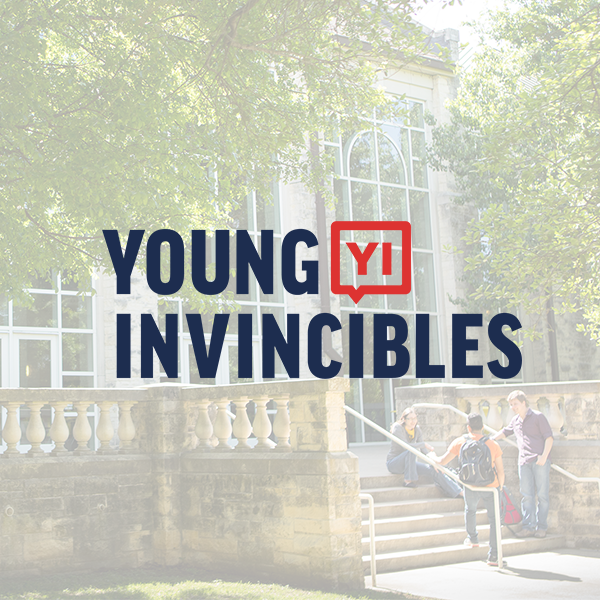News
Championing Civil Discourse in an Era of Partisan Rancor
Southwestern students tackle the complexities of political division.
December 17, 2018
December 17, 2018
Open gallery

Election day was Tuesday, November 6, and Uncle Frank and Cousin Margaret got into another fight over the midterm outcomes over Thanksgiving dinner, so this article is going to be about politics.
No, wait! Come back! Hear me out.
Hearing people out and letting people have their say are exactly what students at Southwestern are aiming for in a new initiative advocating civil discourse on campus. In this era rife with political animus, pundits regularly shout down their guests on 24-hour news networks, politicians endorse attack ads and even physical attacks on their opponents, social-media users block “friends” and flag posts by anonymous strangers after flame wars erupt on Twitbook, professors are compelled to alter their syllabi by livid protesters, and speakers are turned away from invited lectures because outraged community members have sent them death threats. But hope for more respectful, thoughtful political debate nevertheless resides on the campus of Southwestern University.
What is civil discourse?
As when confronting any challenge, participants in the Southwestern initiative will need to begin by diagnosing the problem. Of course, even defining civil discourse presents its own difficulties.
“I’ll tell you what civil discourse is not,” says Southwestern Professor of Political Science Shannon Mariotti. “[It’s] not just being polite; it’s not just being nice. … It is trying to speak your mind about something in a way that is simultaneously open to revision based on somebody else’s perspective, …trying to take an idea and walk around it and look at it from as many vantage points as possible.”
Civil discourse is trying to speak your mind about something in a way that is simultaneously open to revision based on somebody else’s perspective.
Southwestern students demonstrated this concept of inhabiting diverse perspectives in Mariotti’s Contemporary Democratic Theory course last fall, which garnered attention in the New York Times as a model of political debate: Students who represented a range of partisan views argued assertively about volatile topics but also engaged each other mindfully and empathetically. “We’re all always works in progress; we’re all always hopefully changing our minds and enlarging our perspectives,” says Mariotti. “I think that civil discourse is that balancing act between speaking your truth but also recognizing that other people are speaking their truths and trying to hear [those] other people at the same time—really hearing them.”
Southwestern Assistant Professor of Political Science Emily Sydnor, who specializes in political communication, behavior, and psychology, adds that the meaning of civil discourse changes depending on who you ask: “It is a contentious definition, in part because there are a lot of people who study it and conceive of it as politeness,” such as avoiding name-calling and insults. According to this denotation, the term civil refers to subjective standards of etiquette rather than relating more generally to citizens in a society (as in the phrases civil law, civil ceremony, or civil strife).
A second and perhaps more substantive definition of civility lies in “not using racial and homophobic slurs” and intimidation tactics but also “not trying to restrict rights for certain people,” says Sydnor. This elevates the concept of civility from a question of tone to “the context of this commitment to democratic goals and equality”—that is, civility becomes nothing short of a foundational principle of a system of government.
A third definition is perhaps the trickiest because incivility becomes an ad hominem attack by detractors rather than a constructive ideal for discussion: it’s “not actually about whether or not you’re polite at all,” says Sydnor, “but whether or not I call the language that you’re using polite or impolite.” So the label of incivility can easily become a rhetorical weapon against one’s political adversaries, suggesting that an opponent’s arguments are invalid because they are not delivered in a courteous, genteel manner.
We can see this weapon deployed throughout America’s tumultuous past. “‘Civility’ has historically been used to blunt challenges to the status quo,” says Visiting Assistant Professor of History Joseph Hower. “We remember the eminently respectable version of the civil rights movement, for instance, but forget that even the most peaceful activists marching in their Sunday best were widely criticized as radical, insurgent threats.” From abolition and women’s suffrage to disability-rights groups and ACT UP, social movements and demonstrators have often been criticized for uncivil disobedience but were nevertheless crucial in achieving inclusivity. “Whether or not the calls for civility are in good faith,” says Hower, “it isn’t always valid. It is a lot to ask someone whose basic humanity and dignity are denied to respond with calm, kind, open-minded debate.”
And then again, as Mariotti points out, “For some people, civil discourse is the avoidance of political topics.” Of course, bowing out of the conversation entirely isn’t viable on either a college campus or in a participatory democracy, “so civil discourse has to become a learned way of talking about charged issues in a way that’s productive.”
So as SU students embark on their initiative, they will be striving for a civility that culturally remains ill-defined, historically has been used to mask serious social problems, and ironically has veiled ideological divisions. They will have to do so while remembering that, as Sydnor puts it, “incivility can be productive.” In a sense, then, the students will need to get comfortable with discomfort, debate about compromise, model productive civic behavior without positive civic role models, and be civil while struggling to define civility—and discovering whether civility is even the right goal.
In a sense, then, the students will need to get comfortable with discomfort, debate about compromise, model productive civic behavior without positive civic role models, and be civil while struggling to define civility—and discovering whether civility is even the right goal.
The historical cycle of political animosity
The civil discourse project is also challenging considering the height of emotions—and the fact that citizens can’t even agree about the magnitude of the country’s divisions. Some have suggested that political rancor has escalated to unprecedented heights over the past several decades.
But many experts argue that partisan vitriol has existed in the Divided States of America since the country’s founding. American philosopher, poet, and essayist Ralph Waldo Emerson once said, “The two parties which divide the State, the party of Conservatism and that of Innovation are very old, and have disputed the possession of the world ever since it was made. This quarrel is the subject of civil history. … Now one, now the other gets the day, and still the fight renews itself as if for the first time, under new names and hot personalities.” That was in a lecture Emerson delivered in 1841.
Today, scholars tend to agree that hyperpartisanship is nothing new. “You can look to the distant past—the 1790s, the 1820s, and the 1850s—to find plenty of cases in which politics was anything but civil,” says Hower. For example, in her book The Field of Blood: Violence in Congress and the Road to Civil War, historian Joanne Freeman has documented at least 70 physical altercations—from fist-fights to brawls—on the floor of Congress in the decades preceding the Civil War. Between the late nineteenth century and the end of the Great Depression, battles between labor and management spilled beyond the workplace and into the streets. Throughout the social, cultural, and political upheavals of the 1960s and 1970s, bombings, hijackings, kidnappings, and terrorist attacks became shockingly common. So “it is hard to say that the country has never been more divided,” says Hower. “Contrary to a lot of conventional wisdom, history doesn’t actually repeat itself, but there are recurrent patterns and problems that wax and wane over time.”
Sydnor agrees: “Incivility has always been around. We can look at portions of U.S. history that are full of insults by politicians from opposite parties.” So what has changed? “The ease with which we as average citizens are exposed to that [hostile] language,” she says. “When Jefferson and Adams were hurling horrible insults at each other in the early 1800s, that was being picked up by newspapers that were not being read by the majority of people. It wasn’t popular in the same way. But now the president can go on social media, or his rallies are picked up and covered on Facebook Live, and we know exactly what’s happening and know what he’s said 30 seconds after he’s said it. It’s difficult to assess whether the amount of incivility has grown, but the access to it has changed.”
From Mariotti’s perspective, what’s also new is that this 24-hour, real-time access “normalizes and legitimates beyond-the-line rhetoric,” some of which might “violate the core values [of a university] on a regular basis.” That is, reconciling the vituperations trotted out by political leaders, who some might expect to be role models of civic engagement, with the cardinal virtues of an institution can be an immense challenge these days. And as Sydnor remarks, “normalizing and mainstreaming [ideological invective] provides a platform for other people to think it’s OK, too.”
And so citizens do as their elected representatives do: they fight, they denigrate, and they bully. It’s no wonder, then, that in a 2016 Pew Research survey of Republicans and Democrats, majorities in both parties expressed “very unfavorable views of the other party,” stating that they felt not only frustration and anger but outright fear. Among the 4,385 adults surveyed, Republicans and Democrats ranked closed-mindedness as the strongest critique against their opponents.
Open-mindedness and civil discourse in higher education
If accusations of closed minds are the most-cited complaint against the opposition, then where does one go to reopen those minds? In 1987, prominent political philosopher Allan Bloom published the bestselling polemic The Closing of the American Mind, an indictment of higher education. Bloom argued that contemporary colleges and universities were weakening undergraduates’ capacity for curiosity and exploration, which was part of a larger crisis in American democracy and society.
However, many philosophers and historians of higher education would assert that universities play an important—if not indispensable—role in preparing undergraduates for informed citizenship and civic engagement. In a poll of 1,000 adults nationwide commissioned by Allegheny College in 2010, 44% of the respondents aged 18 to 29 years old said that colleges and universities should take the lead in making politics more civil. This call is unsurprising given that higher education is supposed to be a welcoming environment in which young minds learn, interrogate, and challenge ideas, critically evaluating their own and others’ worldviews. “I really think that the hallmark of what we do is to teach students critical thinking,” says Mariotti, “and critical thinking is that work of recognizing that your beliefs, your values, are built into you by your context and … shaped by who you are.” Teaching undergraduates the importance of listening to and learning from other people because individuals are born of different experiences is “part of the work that we fundamentally teach our students and is key to our contemporary political climate.”
Teaching undergraduates the importance of listening to and learning from other people because individuals are born of different experiences is part of the work that we fundamentally teach our students and is key to our contemporary political climate.
For political science major Natalie DeCesare ’19, universities are promising sites for developing and questioning political viewpoints, especially compared with the world beyond college campuses. “It’s an amazing place to experiment. You can do things with support and mentors. … Here, people understand that you’re growing, you’re changing, you’re trying to find your voice,” she says. “That’s exciting … [but] a lot harder after you leave college.”
Key to universities’ role in political engagement is the teaching of academic argument (the skill of contributing to ongoing dialogues using techniques of persuasion) as well as information and media literacy (the ability to understand, process, and evaluate information and information sources). “Part of what we’re doing … is giving them the tools to sort through all the information,” says Sydnor. “The challenge to civility is the constant access to information. Ideally, we can teach [students] what is good and bad information … . We can be cognizant of the ways in which we react to that information and how we contribute to it. [We can] stop when someone says something nasty, think about why they’re doing that, and decide if we need to engage with that.”
College campuses are also a bastion for hope because, as DeCesare says, in politics today, role models of multifaceted thought are lacking. “Show me a role model who … who can think in multiple ways and knows how to interact with all types of people,” she says. “Professors are great role models at this school in showcasing diversity of thought because I’ve had classes in computer science, in history, in theater, and in a lot of poli[tical] sci[ence], and it’s amazing all the different connections they can make.” Faculty, then, can serve as exemplars of civic engagement because they are trained to interact with individuals from diverse backgrounds, and they model the research skills and ability to integrate ideas that help students become informed citizens.
The liberal arts and civic engagement
Contrary to popular belief, the “liberal arts” have nothing to do with liberal politics. As Southwestern students and alumni know all too well, professors do not tell undergraduates what to think; instead, students read the works of a wide range of thinkers from various fields of thought and are asked to critically analyze them.
“A liberal-arts education is incredibly conducive to civil discourse.”
Thus, “a liberal-arts education is,” as political science major Camille Martin ’19 says, “incredibly conducive to civil discourse.” After all, the liberal arts are founded on the Socratic concept of recognizing the limits of one’s own knowledge. Having humility in our attitudes toward truth and knowledge and owning what we do not know enable us to reflect on others’ viewpoints and then do the hard but crucial work of revising our opinions without acquiescing to unconscious biases or assumptions.
The liberal arts also encourage constructive inquiry through various disciplinary lenses, which enriches our perspective on a range of questions, from democracy and politics to culture and identity. Civil discourse is “related to politics, economics, geography, psychology, sociology, anthropology, history, [and] literature,” says SU President Edward Burger, “because the idea is that you’re supposed to welcome different strands of thought and engage, debate, reflect, and analyze them and then change. You’re introduced to a diversity of thoughtful perspectives and try to make meaning of them.” Vice President of University Relations Paul Secord agrees: the liberal arts “are all about thinking through things and teaching empathetic listening and the ability to see things from multiple perspectives.”
DeCesare adds that studying the intersections between those multiple perspectives is crucial: “Civil discourse is so much easier at a liberal-arts school because everyone … share[s] the same educational values. … The liberal arts are modeling the behavior of making connections.” DeCesare has had numerous conversations with her brothers, who attend a state research university, about the differences between their campuses. “At a nonliberal-arts school, I don’t think the students have the same respect for all the other students there,” she says, “because it’s a competition between departments”: English competes against biology, business students face off with kinesiology students. But because the liberal arts train us to make connections between disciplines and with students and faculty across multiple fields, they allow us space for uncertainty, ambiguity, and open-mindedness—the ideal mindset needed for the active listening and compromise that facilitate civil discourse.
Southwestern’s approach to civil discourse
With its core values of “being true to oneself and others,” “respecting the worth and dignity of persons,” and “encouraging activism in the pursuit of justice and the common good,” Southwestern is taking its role in promoting civil discourse seriously. Supported by a significant gift to the university, students at SU are designing and implementing a long-term project in which members of the campus community “are going to talk about tough issues,” says Secord, “intentionally breaking those walls down” between parties and around echo chambers.
From workshops over breakfast tacos and town halls in the residence halls to courses and speaker series, students will engage in serious political discussion, but the goal is to elevate the voices that are often drowned out by those spouting inflammatory rhetoric. “I want to help provide for a campus where everyone’s thoughts and opinions can be heard,” Martin remarks. “I want to find a way for people who don’t normally feel they can speak up in dorms, at parties, and in class to know that there are no repercussions and feel that their opinions really do matter.” She cautions that if people feel like their voices aren’t heard, cynicism and apathy might win out over civic engagement.
DeCesare sees the same danger at the local, state, and federal levels. “Our whole system is [based on] the most powerful people having the biggest voice,” she says. “There’s not really room to compromise or negotiate or show agreement because you look less powerful. So we really have to change the way we have those conversations. [You are not] less of an advocate just because you agree with someone on the other side of the aisle.”
Getting out the vote is one important way for the civil-discourse advocates to assure that all those voices are heard. In 2016, DeCesare was instrumental in reinvigorating SU’s Voter-Friendly Campus Committee, an organization that promotes voter registration and on-campus voting. Martin has collaborated with that committee, recently contributing to a video promoting voter turnout on campus that won third place in a contest sponsored by the Texas Voting Summit and Young Invincibles.
DeCesare is excited to help organize programming that promotes civic engagement on campus. She’s been working with Secord on coordinating a debate between prominent speakers from both sides of the aisle on a controversial topic, such as what free speech means, especially on a college campus. “We want to show other schools that you can have civic events without getting hostile [because] we’ve seen protests without perspective at other schools. We want perspective in protest because protest by students is important.”
SU community members will also engage with empathy; for example, a student doesn’t have to like what their peers are saying about term limits, campaign finance, or disenfranchisement, but they’ll at least learn why they believe in those ideas. And they won’t come to the table with any assumptions that a person who doesn’t share their views is simply a troll looking to start a fight. The initiative may even culminate in a statement of shared values, not unlike the Honor Code for academic integrity, that reflects campus community members’ commitment to not hurt other people and to not assume that others are trying to hurt them.
The small size of SU’s campus is certainly a boon to this endeavor. “There are only 1,500 students here, so there is no anonymity,” says Secord. “We can’t attack each other in a vacuum because we know each other, we eat together, we live together. We’re not big enough to not get along.” In a sense, SU’s tight-knit community emulates the environment of neighborhood meet-and-greets—a setting DeCesare approves of after working as an assistant campaign manager for a congressional candidate. In such a setting, citizens engage with one another and with political representatives directly, away from the anonymous and remote environment of the Internet and social media. “We need to get out of the echo chambers and get back to town halls and town rallies,” she suggests. “When you have a block party and you’re looking at your neighbor face to face, you’re going to have a different conversation. Live in the present and in reality instead of living virtually.”
As the students coordinate new programming, civil discourse will undoubtedly become one of the many practices Southwestern students develop and hone during their years on campus. Like lifelong learning or intellectual curiosity, civil discourse is a transferable skill across the disciplines, beyond the walls of the university, and into civic life. The stakes are certainly high: in addition to not fighting partisans on the other side of the aisle, the students will be working to combat the emotional exhaustion, passivity, and apathy that so easily arise from dogmatism and political entrenchment. But given their reputation for collaborative learning and problem-solving, it’s not surprising that Southwestern students are taking on the challenge to make positive, long-term change. “We’re all oxymorons in some way, shape, or form,” says DeCesare. “We’re so multifaceted. We have to have politics that reflect our different layers. Otherwise, we’re one-dimensional. Us versus them gets us nowhere.”

















